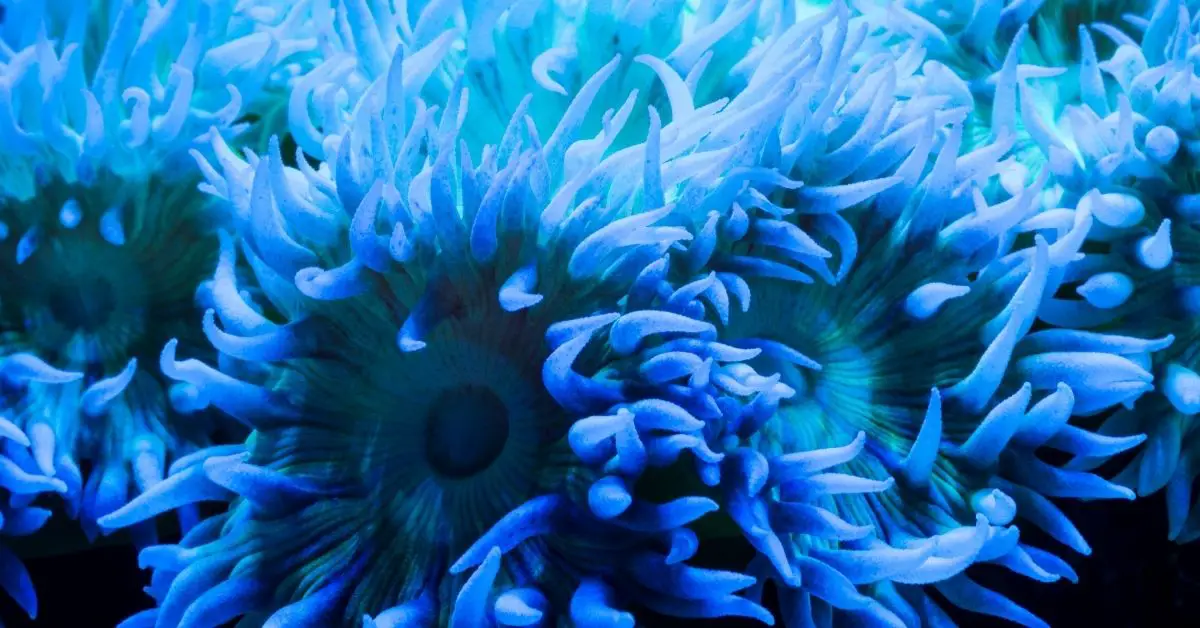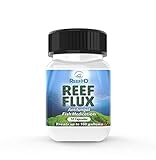Duncan corals are one of the most popular corals for saltwater reef tanks, and many experienced hobbyists recommend them to beginners and those inexperienced when it comes to coral care.
It is a vibrant and exciting coral originating from Australia, which is now found in saltwater tanks all around the world.
These corals adapt well to new tanks, even though they may take a day or two to open up, and they are reasonably easy to care for. However, for first-time keepers, there are a few things to keep in mind, and especially if you want your new Duncan coral to thrive.
About Duncan Corals
The Duncan coral is a coral with a calcified skeleton that tends to be lightly colored, and their short tentacles allow you to clearly see it as the coral sits there in your tank. The coral itself is usually pink, white, cream-colored, or another bright and eye-catching color.
Instant Ocean Reef Crystals Reef Salt For 160 Gallons, Enriched Formulation For Aquariums
$66.79 (as of November 13, 2025 01:21 GMT +02:00 - More infoProduct prices and availability are accurate as of the date/time indicated and are subject to change. Any price and availability information displayed on [relevant Amazon Site(s), as applicable] at the time of purchase will apply to the purchase of this product.)Seachem Reef Glue Cyanoacrylate Gel Coral Frag Mounting, 20g (001167)
$9.99 (as of January 28, 2026 21:41 GMT +02:00 - More infoProduct prices and availability are accurate as of the date/time indicated and are subject to change. Any price and availability information displayed on [relevant Amazon Site(s), as applicable] at the time of purchase will apply to the purchase of this product.)ReefHD Reef Flux Anti-Fungal Treatment (100 gal)
One thing to be aware of is that Duncan corals do not have sweeper tentacles, and their tentacles are short. For this reason, it can be a bad idea to place it in a tank together with corals that do sting, as they could end up being hurt.
These stunning corals – the Duncanopsammia axifuga (belonging to the Dendrophyllidae family), thrives in high calcium concentration waters, and while belonging to the Large Stony Polyp species, it sometimes gets confused with the species called button polyp.
Duncan corals are known for being a good beginner’s coral, thanks to being hardy and adaptable, and considering how little effort it takes to successfully keep one of these – you get plenty out of it.
Life Expectancy
The life expectancy of a Duncan coral is surprisingly long – several years, and while there are no statistics for Duncan corals in captivity, some Duncan corals in the wild have been known for living for more than 100 years.
How long a Duncan coral lives also depends on whether it has lived its whole life in captivity, or if it was caught in the wild. The care the tank owner provides is also relevant.
The Natural Habitat of the Duncan Coral
In the wild, Duncan Corals can be found in the deep sea of China and in Australia, mostly, and they are known for enjoying warm waters. These photosynthetic corals form colonies in the wild, and you can find them at the bottom of reefs and low-current seas.
Conditioning Your Tank – Water Parameters and Placement
Duncan corals thrive in tanks that hold at least 30 gallons and tend to show a preference for stable water perimeters (which are commonly found in larger tanks).
When placing your Duncan coral in the tank, you generally want to place it at the bottom or somewhere in the middle of the reef tank in a place with low currents, and it is a coral that requires light.
The tank temperature should be kept at approximately 72 – 78° F with a pH range of 8.1 – 8.4 and a dKH range of 8 – 12, and you might want to consider adding calcium supplements and other additives to the tank.
Where Is the Duncan Coral Available?
An interesting fact is that the Duncan coral wasn’t always as easy to obtain as it is today. It is native to Australia, and for a time there was a bad that stopped people from exporting it from the country, but this ban has since been lifted. Duncan corals are now available worldwide.
Feeding Guide
When you have a Duncan coral, it is your responsibility to make sure it is fed right, as the coral can’t acquire its own food the way it would in the wild. What you want to achieve is a thriving coral that grows strong and healthy.
Duncan corals can benefit greatly from being provided with a few meaty bits in their diet, and we are going to have a look at suitable options. You can use live or frozen food for your Duncan coral.
Common additives needed in a tank with a Duncan coral are strontium, calcium, and a few other relevant trace elements, but what you need to add will depend on your tank conditions, salt mix, and more.
What to Feed a Duncan Coral
- Brine Shrimp
- Shellfish
- Nauplii Larvae
- Mysid Shrimp
- Cyclops
- Tigropius copepods
Why is My Duncan Coral Not Opening?
One of the most common questions found in reef tank forums is this: Why is my Duncan coral not opening? It is perfectly normal for one of these corals to remain closed for a couple of days after you introduce it to the tank, as it needs to adapt to its new surroundings.
Duncan Corals may also close up from time to time, but shouldn’t stay closed for more than a day or two. If your Duncan coral still hasn’t opened after a week or so, it is time to start considering that it might not be comfortable in the tank.
Could something be bothering it? It could be another coral, plant, or animal, or water hardness, or other tank conditions.
In general, the Duncan coral isn’t picky when it comes to tank conditions, and while it is not a cause for concern if it stays closed or closes up for a day here and a day there, longer periods could be an indicator of something being wrong.
Conclusion
If you are only just getting started with your saltwater tank, or if you have never had corals before, then the Duncan coral is a good place to start. It won’t cause you much of a headache, and it will brighten your whole tank with its vivid colors.
Duncan Corals were once somewhat difficult to acquire, but can now be found in countries all over the world.
Incorporating a Duncan coral in a reef tank is a very simple way to kickstart your new hobby, and all you need to think about is providing it with the correct tank mates and appropriate tank conditions.











